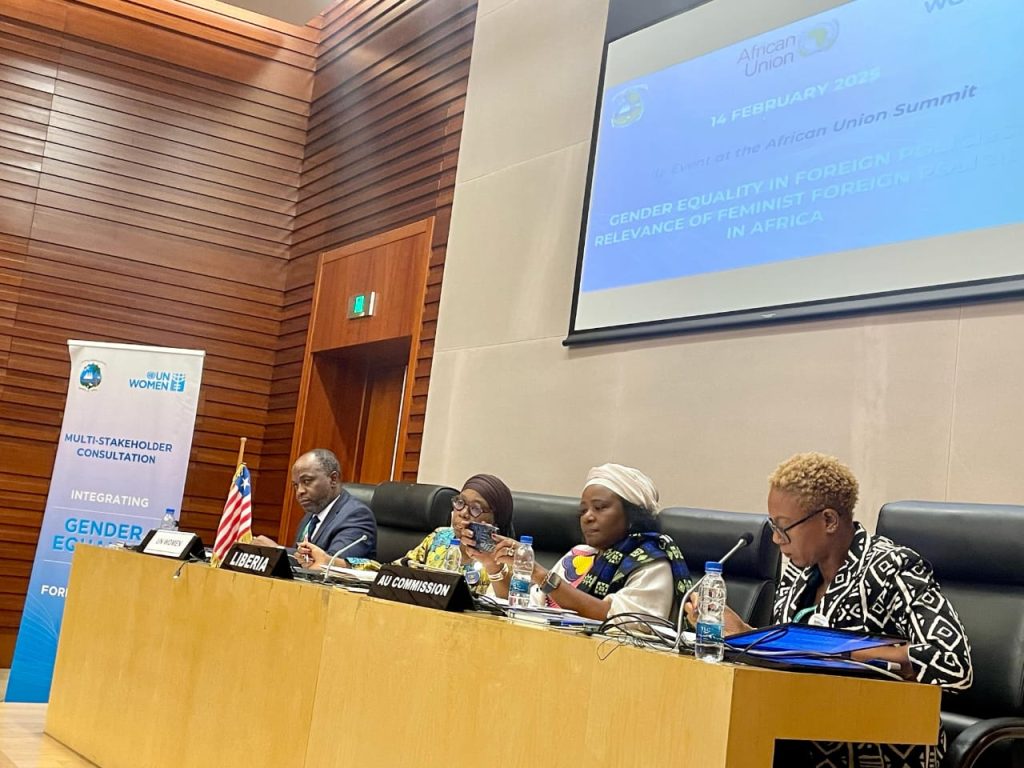Liberia is championing a transformative shift in foreign policy by prioritizing gender equality and women’s empowerment. At the 38th African Union Summit, the nation reaffirmed its commitment to integrating feminist principles into its diplomatic and governance frameworks, aiming to become a pioneering African nation in adopting a Feminist Foreign Policy (FFP). This commitment builds upon Liberia’s historical strides in promoting women’s leadership, including electing Africa’s first female president and appointing the first woman to the UN Security Council. The high-level side event on FFP during the summit provided a platform to showcase Liberia’s progress and advocate for broader adoption of gender-responsive policies across Africa.
The core objective of Liberia’s initiative is to embed gender considerations into every facet of its foreign policy, ensuring that women’s rights and needs are addressed in all international engagements. This approach aligns with the global push for gender equality, reflected in the Sustainable Development Goals, particularly SDG 5, and reinforces the principles enshrined in UN Security Council Resolution 1325 on Women, Peace, and Security, and the Beijing Declaration and Platform for Action. The event emphasized that true gender equality necessitates a comprehensive transformation of societal structures and norms, challenging traditional power dynamics and promoting inclusive decision-making.
Liberia’s Foreign Minister, Sara Beysolow Nyanti, articulated the nation’s dedication to this transformative agenda, stressing the importance of equal and meaningful representation of women in all spheres. She underscored Liberia’s role as a global advocate for feminist principles, actively participating in international platforms like the FFP+ Group in New York. The event garnered support from key stakeholders, including the African Union Commission, UN Women, and international development partners like France, who shared their own experiences in implementing feminist foreign policies.
The African Union Commission reaffirmed its commitment to gender equality as a central tenet of Agenda 2063, recognizing its crucial role in achieving the continent’s development aspirations. UN Women highlighted the growing momentum for gender-responsive foreign policies globally, citing the increasing number of member states integrating such measures into their international engagements. The emphasis on gender-responsive Foreign Direct Investment (FDI) further underscored the link between women’s economic empowerment and sustainable development.
France, a pioneer in adopting a Feminist Diplomacy Strategy, shared its experience and best practices, demonstrating how feminist principles can be effectively integrated into foreign policy instruments. The shared experiences and collective commitment underscored the potential for transformative change through collaborative efforts and knowledge sharing. The high-level event concluded with concrete recommendations for advancing the FFP agenda, including a call for closer collaboration with Liberia, the establishment of a Group of Friends of Gender Equality at the African Union, and continued consultations at regional and national levels.
Liberia’s commitment to a feminist foreign policy aligns seamlessly with its national development priorities, outlined in the National Development Plan (2024-2026) ARREST Agenda for Inclusive Development and the revised National Gender Policy. These frameworks prioritize gender equality as a driver of inclusive growth and sustainable development. The nation’s leadership in championing gender-responsive policies serves as a powerful example for other African countries, demonstrating the potential for transformative change through embedding feminist principles into foreign policy and governance frameworks. The event marked a pivotal moment in advancing gender equality in Africa, signaling a shift towards more inclusive and equitable governance structures that prioritize the rights and needs of all citizens.


